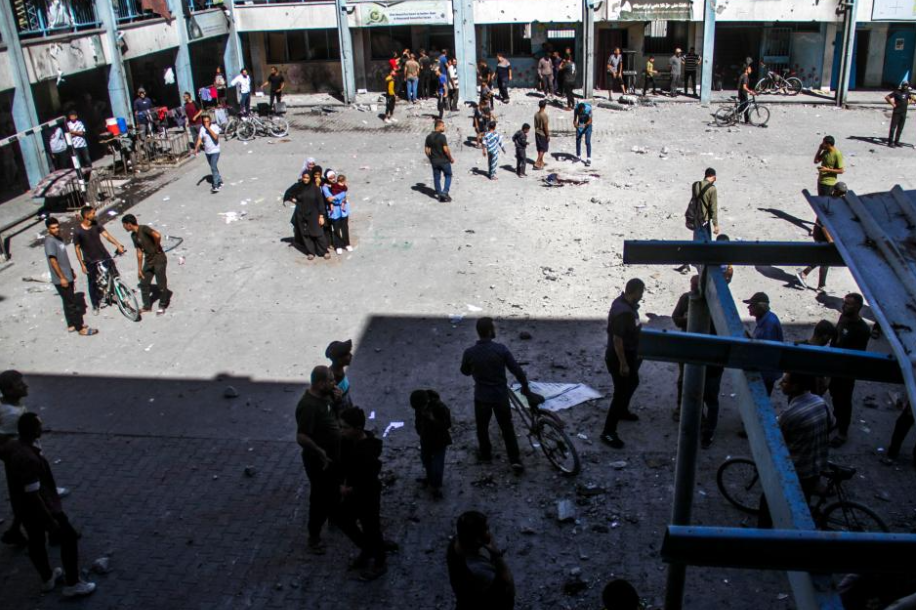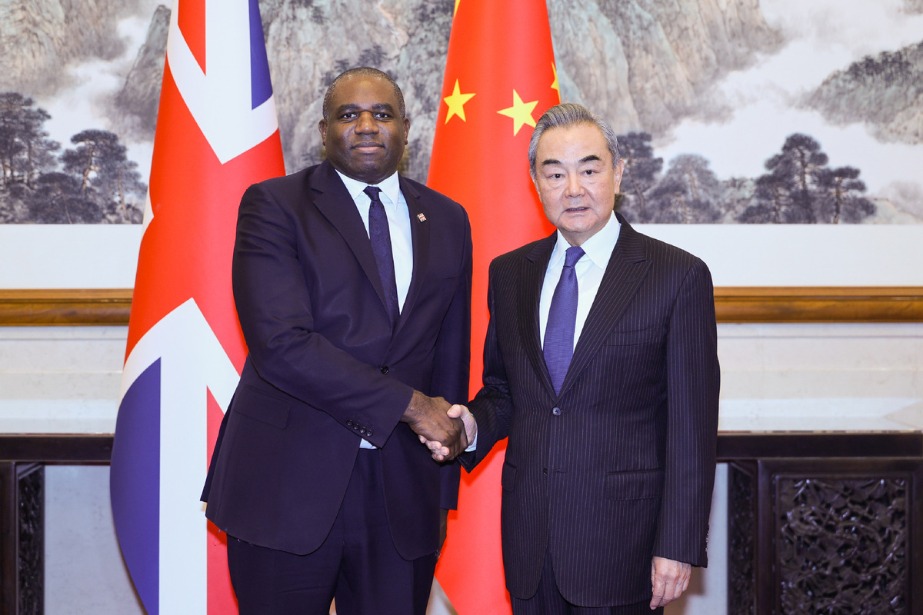Russia blames Ukraine for blogger's death


Suspect detained for St. Petersburg blast while Kremlin accuses West of hypocrisy
MOSCOW — Russian authorities blamed Ukrainian intelligence agencies on Monday for orchestrating a bombing at a St. Petersburg cafe that killed a Russian military blogger and arrested a suspect accused of involvement in the attack.
Vladlen Tatarsky, whose real name was Maxim Fomin, had 560,000 followers on the messaging app Telegram. He was one of the most prominent of Russia's military bloggers, who supported Moscow's special military operation in Ukraine.
St. Petersburg's governor said that 32 people were wounded and 10 of them were in serious condition.
Russia's National Anti-Terrorist Committee, a state structure that coordinates counterterrorism, called the killing a terrorist attack, saying that the attack was "planned by Ukrainian special services" with the involvement of people who have cooperated with an anti-corruption foundation created by jailed Russian opposition leader Alexei Navalny. It noted that the arrested suspect was an "active supporter" of Navalny's group.
A spokeswoman for Navalny's foundation rejected the accusation.
Ukrainian authorities did not directly respond to the accusation, but President Volodymyr Zelensky said that he doesn't think about events in Russia.
Earlier on Monday, Russia's state Investigative Committee said that Darya Trepova, a suspect in the killing of the blogger, had been detained.
The suspect, a 26-year-old St. Petersburg resident, had been previously detained for taking part in anti-war rallies.
TASS news agency quoted an unnamed source as saying the bomb was hidden in a miniature statue that was handed to Tatarsky as he addressed a group of people in the cafe.
Mash, a Telegram channel with links to Russian law enforcement, posted a video that appeared to show Tatarsky, microphone in hand, being presented with the statuette of a helmeted soldier. It said the explosion happened minutes later.
The head of the Wagner paramilitary group, Yevgeny Prigozhin, said that the cafe previously belonged to him, but he has since given it to "patriotic" activists who have been holding meetings there, according to Reuters.
Russia's Foreign Ministry had earlier said silence in Western capitals exposed hypocrisy over expressions of concern for journalists.
Spokeswoman Maria Zakharova said the absence of reaction in Washington, London and Paris "speaks for itself given their ostensible concern for the well-being of journalists and freedom of expression".
Tatarsky's death followed the killing last August of Darya Dugina, the daughter of a prominent political thinker, in a car-bomb attack near Moscow.
Politicization criticized
In another development, Russian Foreign Minister Sergey Lavrov told US Secretary of State Antony Blinken on Sunday it was unacceptable for Washington to politicize the case of Wall Street Journal reporter Evan Gershkovich, who has been detained and accused of spying in Russia.
The Russian Foreign Ministry said Lavrov told Blinken in a phone call that Gershkovich's fate would be determined by a court.
"It was emphasized that it is unacceptable for officials in Washington and the Western media to whip up a stir with the clear intention of giving this case a political coloring."
On the battlefield, fighting around the eastern Ukrainian city of Bakhmut remained "particularly hot", Zelensky said, giving no indication the city had finally fallen to Russia as claimed by the founder of Wagner.
Agencies via Xinhua
































